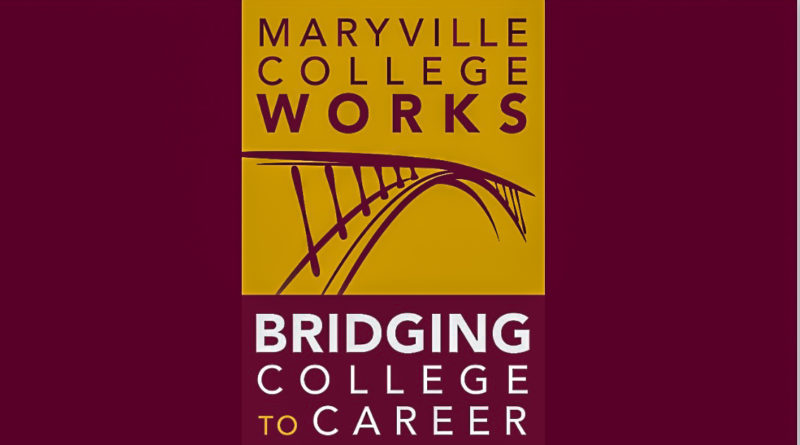Maryville College Works requirement breakdown.
The Maryville College Works program started in 2014.
“Since then, it’s led to some important culture changes on campus in terms of professional education,” said Director of Maryville College Works, Dr. Doug Sofer. “We realized that while our students tended to do pretty well after graduation, some needed a few years to get their feet on the ground, professionally speaking. Liberal arts colleges like MC used to focus almost exclusively on helping students become well-educated, well-rounded, ethical citizens. We teach students how to think for themselves, to ask questions, to create and innovate.”
How are Maryville College Works requirements are broken down?
- Take the Focus 2 assessment (1st year):
During freshman year every student takes a First-Year Seminar (FYS) class that goes along with the Maryville College curriculum and includes taking the Focus 2 assessment. It is an “online tool designed to help you make decisions about your major and explore career options,” according to the Maryville College website. “Successful completion of this assessment can point you in the right direction when deciding on a major and can give you a head start in discovering occupations to explore for your Significant Practical Experience (SPE).”
- Create a foundational resume (1st year):
In the First-Year Seminar class, students have the opportunity to complete a foundational resume. This is the first time students are directly connected with Career Center staff.
“A resume is not just a list of your job-related credentials and experiences. Instead, you should look at a resume as a marketing tool that provides employers with a snapshot of your work experience as it relates to a specific job,” according to the Maryville College website.
- Attend a first-year career fair (1st year):
This is the first opportunity for students to connect with employers in a professional setting.
“The employers you have access to in your first year are the ones that register to come,” said Elicia Ferrer, Career Outreach Specialist. “Typically, when career fairs are in person, they are more local, but last year at the virtual career fair, we had more national organizations. The purpose of attending your first-year career fair is to explore and learn how to represent yourself professionally.”
- Complete career development plan (2nd year):
During the sophomore year, students complete a career development plan in a professional development class.
“The Career Development Plan consists of multiple components, including a self-reflection in which you briefly articulate your values, work style, strengths, and leisure interests. Goal setting where you identify specific career goals that you can measure after your significant practical experience (SPE) in the junior year.
In “The List” students “create a record of specific institutions, organizations, companies, fellowships, and graduate programs to which you would like to apply in the future,” according to the Maryville College website.
- Attend a second-year career fair (2nd year):
Just like the first-year career fair, students are able to connect with local employers and organizations.
“Building off of your experiences from the first-year career fair, this is a second opportunity to interact with real-world professionals who are interested in providing opportunities for Maryville College students. You will grow more comfortable networking with employers, dressing professionally, listening, and polishing your materials and smoothing out your professional pitch to employers,” according to the Maryville College website.
- Request a significant practical experience (SPE) in Handshake (2nd-3rd year):
Requesting and SPE in Handshake is simple. After connecting with your advisor and deciding what you would like to do for your SPE, they help guide you in the right direction.
According to the Maryville College website, “The proposal builds off of your Career Development Plan and identifies specific, measurable goals that you will attempt to meet by participating in an off- or on-campus professional experience.”
- Complete your SPE (3rd-4th year):
During junior or senior year, students complete an SPE which can vary depending on the student.
“Your SPE may take the form of an internship, a volunteer opportunity, a senior study, a study abroad experience, a creative project, or another experience relevant to your career goals,” according to the Maryville College website.
- Complete a final SPE assessment (3rd-4th year):
“This final assessment of your SPE compares your initial goals with the realities of your professional experiences during your SPE,” according to the Maryville College website. The SPE assessment is sent to students by someone in the Career Center. The completion of this requirement can help other students who are looking into the same type of SPE.
- Attend a senior information session (4th year):
“Senior information sessions vary in topics, including sessions centered around full-time employment after graduation, graduate schools, and other post-graduate opportunities,” according to the Maryville College website.
These events are advertised through Handshake, and some faculty may offer something specifically related to a student’s major.
- Create a senior reflective professional piece (4th year):
The final check on the checklist is creating a senior reflective professional piece. “Your task in this final reflective piece is to articulate how your liberal arts education, your career reflections, and your SPE apply to professional opportunities in a target career,” according to the Maryville College website.
Completing these requirements results in a checkmark in the Maryville College Works checklist.
With any questions or concerns, the Career Center is open for students to make appointments, and they also have walk-in hours Monday through Friday 11 a.m.-2 p.m. or Wednesday nights 6-8 p.m.

